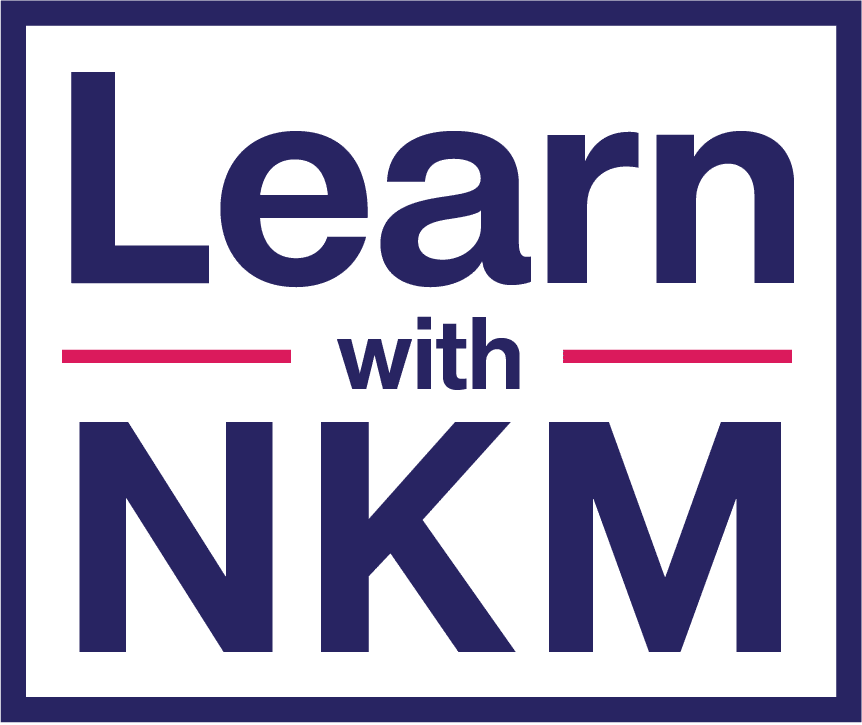When I first began my digital life as a freelancer, I did not know what platform to choose. I attempted everything ranging from custom coding to drag-and-drop software. But the day that I learned about WordPress was the day I was free. Both of my companies NKM Digital and Design IQ are now powered by WordPress, and I’ve assisted hundreds of students, freelancers, and startups in doing the same.
If you’re curious about what WordPress is, how it functions, and if it’s the best site for you, then you’ve come to the right place. Throughout this in-depth and individualized guide, I’ll demystify everything in plain language, just as I do when tutoring students through Learn with NKM.
Let’s begin.
Table of Contents

What is WordPress?
WordPress is an open-source, free Content Management System (CMS) where you can build and maintain websites without having to code. First released in 2003 by Matt Mullenweg and Mike Little, WordPress began as a blogging site but has grown to become the foundation of the contemporary web.
Today, more than 43% of all websites on the web are built with WordPress, from news sites, to online shops, portfolio sites, and online courses.
In other words: WordPress is your online canvas. It provides you with all the tools you need to build a website, your way.
What is WordPress Used For?
When someone asks me what is WordPress used for, I commonly reply, “Everything.”
Here are just a few of the things you can create with WordPress:
1. Blogs
It began as a blogging platform, and it still does.
Many of the world’s best bloggers trust WordPress to produce, structure, and publish content.
2. Business Websites
From international companies to local bakeries, WordPress hosts all sorts of business websites. At Design IQ, we build SEO-friendly, professional websites using WordPress for our clients.
3. eCommerce Stores
With plugins like WooCommerce, WordPress transforms into a powerful online store. I’ve helped clients build entire shops that generate thousands in revenue monthly.
4. Portfolios and Resumes
Freelancers, photographers, and artists love WordPress for showcasing their work in a sleek and responsive manner.
5. Online Courses (LMS)
Via tools such as LearnDash and Tutor LMS, you can make your WordPress website a full-fledged learning management system. Learn with NKM utilizes this too.
6. Membership Sites and Communities
If you desire to create a membership-based community or gated content site, WordPress is all the flexibility you require.
7. News Portals and Magazines
Large publications such as The New Yorker and TechCrunch run on WordPress.
In brief: If you dream it, you can WordPress it.

WordPress for Newbies: Why It’s the Best Place to Begin
When I lead newbies through creating their initial site, I begin with WordPress. Here’s why:
1. No Coding Necessary
You don’t have to be a programmer. With some clicks, you can build pages, insert content, and add new functionality.
2. Drag-and-Drop Builders
Page builders such as Elementor, WPBakery, and Gutenberg make designing a breeze. If you can drag and drop, you can design!
3. Inexpensive for Everyone
The main software is free. You just need a domain and hosting, which only costs as little as $2/month.
4. Limitless Tutorials
There are countless tutorials on YouTube, blogs (such as this one), and forums. You’ll never be stuck.
5. Monster Plugin Library
There’s a plugin for all. Need to include a contact form, enhance SEO, or speed up your site? There’s a plugin for it.
In the early days of building my first blog in 2015, I was feeling overwhelmed. But WordPress made it all easier. Now, I see the same confidence bloom in my mentee students.

WordPress.org vs WordPress.com: What’s the Difference?
One of the most frequently asked questions I receive is:
“Nilesh, do I use WordPress.org or WordPress.com?”
Here’s the difference:
| Feature | WordPress.org | WordPress.com |
| Hosting | Self-hosted (you purchase hosting) | Hosted by WordPress |
| Customization | Full control (themes, plugins, code) | Limited customization |
| Monetization | Fully permitted (ads, eCommerce, etc.) | Limited unless on premium plans |
| Cost | Free software (you host it) | Free basic plan, paid upgrades |
| Best For | Businesses, blogs, freelancers | Hobby bloggers, personal use |
My Recommendation:
Always use WordPress.org. It provides full control, greater flexibility, and you absolutely own your content.
At NKM Digital, we only develop sites on WordPress.org for this very reason.
Benefits of WordPress: Why It’s Still the #1 CMS in 2025
And even after 20 years, WordPress is still the best. Here are some reasons why I (and millions of others) adore it:
1. Open Source and Free
You’re not tied to a subscription plan. You are completely free.
2. Highly Customizable
Thousands of themes and 50,000+ plugins let you personalize every detail of your site.
3. SEO-Friendly
WordPress has a design that makes it easy for Google to comprehend your content. And then there are plugins such as RankMath or Yoast that make on-page SEO extremely simple.
4. Responsive Design
Most contemporary themes have mobile-friendliness by default.
5. Strong Community Support
WordPress boasts a worldwide community. There are forums, blogs, events, and meetups throughout the year.
6. Safe and Secure
With regular updates and security plugins, your site stays protected.
7. Scalable
Start small and grow big. WordPress is capable of handling thousands of pages and heavy traffic.
I’ve built one-page websites for students and full-scale eCommerce platforms for businesses—all on WordPress.
How WordPress Works
You might be wondering: What happens behind the scenes?
Here’s a beginner-friendly breakdown:
1. Hosting + Domain
You purchase a domain name (yourwebsite.com) and hosting (space on a server).
2. WordPress Installation
Most hosts provide one-click WordPress installation.
3. Dashboard (Backend)
You gain access to a dashboard where you can:
- Create posts & pages
- Install themes
- Add plugins
- Manage comments
4. Themes and Plugins
Themes determine the appearance of your site. Plugins provide additional functionality.
5. Frontend
What visitors see when they visit your site.

WordPress vs Other CMS Platforms (Wix, Webflow, Framer)
Let’s compare WordPress to those:
| Feature | WordPress | Wix | Webflow | Framer |
| Ease of Use | Beginner-friendly | Very easy | Moderate | Developer-focused |
| Customization | Unlimited | Limited | Advanced | Advanced |
| SEO | Excellent | Good | Great | Moderate |
| Ownership | Full control | Hosted | Hosted | Hosted |
| Plugins | 50,000+ | Limited | Integrations | Limited |
My Take:
- Use WordPress if you desire total control, flexibility, and elbow room to grow.
- Use Wix/Webflow for drag-and-drop, basic sites.
- Use Framer if you’re a designer/developer building interactive sites.
How to Build Your First WordPress Website: A Quick Guide
Here’s how to build your first WordPress site in less than an hour:
Step 1: Get a Domain and Hosting
I suggest Hostinger, Bluehost, or SiteGround.
Step 2: Install WordPress
Most hosts have a one-click installer.
Step 3: Select a Theme
Use a free theme such as Astra or Neve to start.
Step 4: Install Important Plugins
- Elementor (page builder)
- RankMath (SEO)
- WPForms (contact form)
- UpdraftPlus (backup)
Step 5: Add Your Pages
- Home
- About
- Services/Portfolio
- Contact
- Blog
Step 6: Customize and Launch
Need a step-by-step guide? See our post: Build a WordPress Website from Scratch in 2025
Final Thoughts: Why I Still Recommend WordPress in 2025
Whether you’re a student, freelancer, or business owner—WordPress is the tool that can bring your online vision to life.
It’s how I began, it’s what I continue to use, and it’s what I coach.
At Learn with NKM, we assist everyday beginners to build their very first WordPress website. Because I personally know: creating something of your own establishes confidence, clarity, and clients.
If you were curious about what is WordPress, I hope this tutorial gave you all the insight you require.
Frequently Asked Questions (FAQs)
What is WordPress?
WordPress is an open-source and free platform that assists you in creating and running websites without the requirement of coding skills. It is similar to Microsoft Word, but for websites. With WordPress, you are able to make blogs, business websites, online stores, and much more.
Is WordPress suitable for beginners?
Yes. WordPress for beginners is one of the most user-friendly and adaptable platforms to begin with. With drag-and-drop page builders such as Elementor and thousands of available themes and plugins, even a person with no technical ability can build a professional site.
What is WordPress being utilized the most for?
Initially built for blogs, WordPress today is utilized for:
1. Personal journals and blogs
2. Business sites
3. Online shops (eCommerce)
4. Portfolio and resume websites
5. Learning platforms (LMS)
6. Membership and community sites
How are WordPress.org and WordPress.com different?
WordPress.org is self-hosted and allows you complete control over your site.
WordPress.com is a hosted website with restrictions unless you pay for a premium subscription.
For total flexibility and monetization potential, WordPress.org is the way to go.
Is WordPress free to use?
Yes, the core WordPress software is 100% free. However, you will need to purchase a domain name and web hosting to make your website live. Some themes and plugins may also have premium versions.
Can I use WordPress for eCommerce?
Yes! With plugins like WooCommerce, WordPress becomes a powerful eCommerce platform. You can sell physical or digital products, manage inventory, and integrate multiple payment gateways.
Do I need to learn to code to use WordPress?
Not in the slightest. One of the greatest advantages of WordPress is that it does not involve any coding skills. That being said, having some HTML or CSS knowledge can let you dig deeper into customization, but not for starting out.
What are the pros of using WordPress compared to other web builders?
1. Full ownership and control
2. Massive plugin marketplace (50,000+)
3. Super SEO-friendly
4. Scalable and secure
5. Active community and learning resources
6. Unlike hosted sites such as Wix or Squarespace, WordPress expands with your business.
Can I earn money with a WordPress website?
Yes. You can monetize your site with:
1. Affiliate marketing
2. Selling products or services
3. Showing ads (Google AdSense)
4. Selling paid memberships or courses
WordPress is the best platform for creating an online business.
Is WordPress relevant in 2025?
Absolutely. With additional features, plugins, and an active developer community, WordPress is still the #1 site platform. I myself use it for all client projects at Design IQ and suggest it to all students through Learn with NKM.

